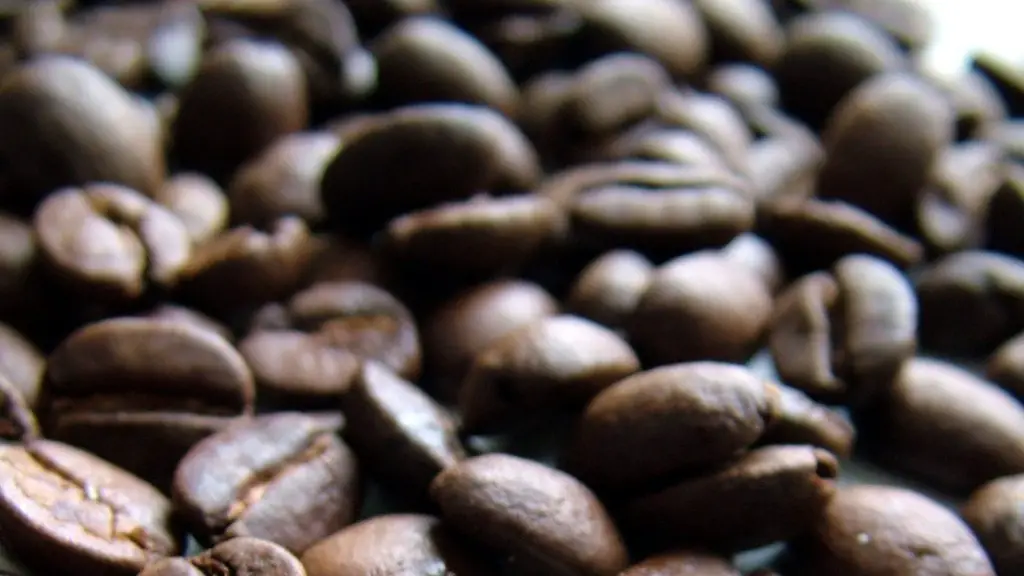Coffee is a popular drink enjoyed by many people across the world. Not only is this beverage delicious and comforting, but it also offers certain benefits. One of the most common effects of coffee, however, is that it can make us go to the bathroom shortly after drinking it, as if it has some sort of stimulant effect. That’s why it’s important to understand why we go to the bathroom after drinking coffee.
It all comes down to the way caffeine affects the body. When we drink coffee, the caffeine is absorbed by the body almost immediately. This then signals the nerves in our digestive system to start working faster. As a result, food is digested more quickly, leading to an increased production of waste. This is why we often feel the need to urinate shortly after drinking a cup of coffee.
Furthermore, caffeine also has a diuretic effect on the body, which means it increases the production of urine. This causes us to urinate more often, even if there is no need to go to the bathroom. This can be especially noticeable in people who are sensitive to caffeine, as their bodies will react more quickly to the stimulant effects of the beverage.
Finally, the type of coffee we drink can also influence the frequency of urination. Drinks containing higher levels of caffeine, such as some espressos, are more likely to make us need to go to the bathroom. Likewise, decaffeinated coffees have less of a stimulating effect, so we may not need to go to the bathroom as often.
In short, the reason why we go to the bathroom after drinking coffee is because of the way caffeine affects the body. It increases the production of urine and waste, as well as speeding up the digestive process. This is why it is important to be aware of how much caffeine is in our coffee, in order to understand how it might affect us.
Environmental Impact of Coffee Consumption
The production of coffee has a huge environmental impact that cannot be overlooked. From unsustainable farming practices to logistics, coffee production has an impact on the environment that should not be taken lightly.
The first issue to consider is the unsustainable farming practices that are often used in the production of coffee. These practices lead to a decline in the quality of the soil, as well as increased levels of waste and pollution, which can have detrimental environmental effects.
Another issue is the short shelf-life of coffee beans and the need for a complex, expensive transportation network to get them from the farmers to the cup. This means that large amounts of fuel are used in the transportation of coffee beans, which can contribute to air pollution and climate change.
Finally, the packaging of coffee beans can also have an environmental impact. Single-use plastic packaging, for example, is problematic as it is not biodegradable and can end up in the ocean, resulting in the death of marine life.
Ultimately, understanding the environmental impact of coffee production is important in order to ensure that the impact is minimized, and that the coffee industry is sustainable in the long-term.
Health Benefits of Coffee Consumption
Many people are aware of the stimulating effects of coffee, but few know about the potential health benefits that it can offer. This is why it is important to understand the potential health benefits that come with coffee consumption.
Firstly, coffee contains high levels of antioxidants, which can help to protect the body from the damage caused by free radicals. This can result in better protection against diseases, such as cancer and heart disease.
Coffee can also be beneficial for those with type 2 diabetes. It has been found to improve the body’s sensitivity to insulin and reduce the risk of developing diabetic complications.
Furthermore, coffee can also have a positive effect on cognitive function. Research has shown that regular coffee consumption can improve alertness, concentration and focus, as well as memory.
Finally, coffee has also been linked to lower levels of depression in those who drink it regularly. This is likely due to the fact that coffee can help to improve one’s mood and give them more energy.
Overall, coffee offers a wide range of potential health benefits. For this reason, it is important to understand these potential benefits in order to make informed decisions about our coffee consumption.
How Much Coffee Is Too Much?
While the potential health benefits of coffee make it tempting to drink more and more, it is important to be aware of how much is too much. That way, we can make sure that our coffee consumption remains within safe limits.
Generally speaking, it is recommended to limit coffee consumption to three to four cups per day. Any more than this can be potentially dangerous, as high levels of caffeine can lead to nausea, headaches and anxiety. Those who are sensitive to the effects of caffeine may even experience these symptoms in less than three cups.
It is also important to bear in mind that not all coffees are created equal, and some may contain more caffeine than others. For this reason, it is important to be aware of the caffeine content of the coffee you are drinking and adjust your consumption accordingly.
Finally, it is worth pointing out that those who are pregnant or breastfeeding should limit their coffee consumption, as caffeine can cross the placenta and enter the baby’s bloodstream. For this reason, it is best to limit coffee consumption in these situations to just one or two cups per day.
Overall, being mindful of how much coffee we are consuming can help to ensure that we do not overexert ourselves or put our health in danger.
What Does Coffee Taste Like?
Despite the fact that coffee has been around for centuries, there is still a certain amount of mystery surrounding what it actually tastes like. While some may be familiar with the taste of their favorite coffee shop, there is a lot more to the flavor of coffee than meets the eye.
Most coffees will have a complex flavor, with notes of caramel, nuts, chocolate, vanilla, and even citrus. Depending on the type of coffee, these notes may be more or less pronounced, but all will contribute to the overall taste of the beverage. Some coffees may also have a bitterness to them, which comes from the higher levels of caffeine.
The actual flavor of coffee can vary drastically from one type to another, as different coffees are grown in different regions and conditions. This is why it is important to ask for advice from coffee experts when trying to pick out the perfect cup.
Furthermore, the way coffee is brewed can also affect the taste. For instance, a French press will yield a much different cup of coffee compared to an espresso, due to the different brewing techniques and grind size.
Overall, there is a lot to consider when it comes to figuring out what coffee tastes like. Even experienced coffee drinkers may not be able to accurately describe the flavor, as there are so many variables involved.
Does Coffee Help with Weight Loss?
The idea that coffee can help with weight loss has been a hot topic of conversation for some time now. However, understanding whether or not coffee can actually help us lose weight requires us to look deeper than just the notion.
Firstly, it is important to note that coffee can act as an appetite suppressant. This is because caffeine can increase the production of certain hormones, such as adrenaline and adrenaline, which can make us feel less hungry.
Furthermore, coffee can also increase our energy levels, which can make it easier to focus on and stick to an exercise routine. This can help to burn more calories, leading to weight loss over time.
However, it is important to remember that coffee is not a miracle weight loss solution. In order to achieve long-term weight loss, it is important to combine coffee with a balanced diet and regular exercise.
Overall, understanding the potential role of coffee in a weight loss plan is important, as it can be a helpful tool in achieving results. However, it is important to bear in mind that coffee should not be relied upon as a sole source of weight loss.





